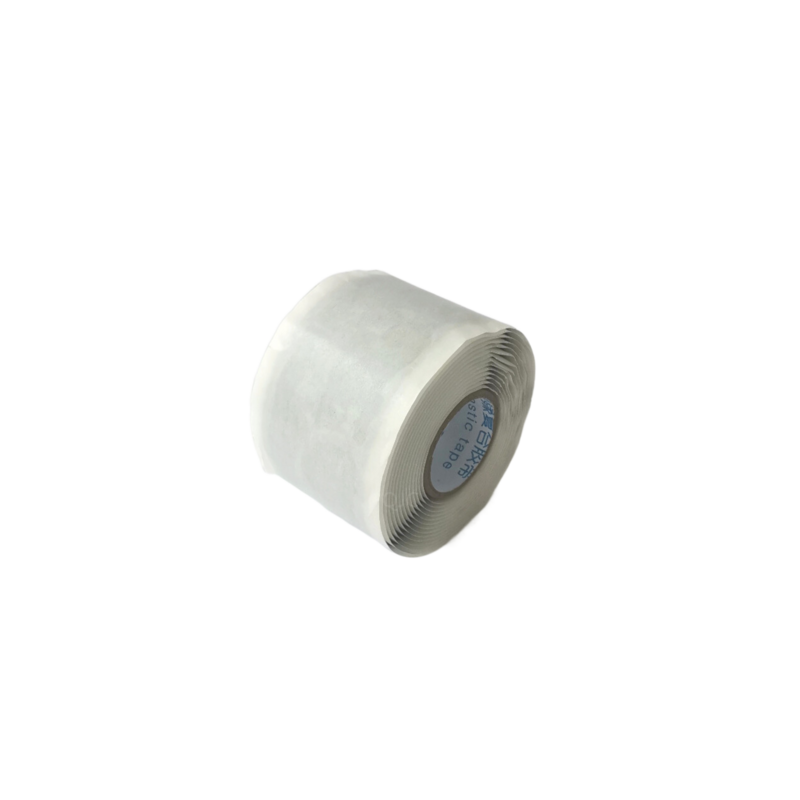The Importance of Electrical Insulation Tape A Focus on Black Variants
Electrical insulation tape, commonly known as electrical tape, is an essential tool in the realm of electrical work and repair. Among the various colors available, black electrical insulation tape holds a prominent position due to its versatility and distinct properties. This article delves into the significance of black electrical tape, its applications, material composition, and safety considerations.
Characteristics of Black Electrical Insulation Tape
Black electrical insulation tape is primarily made from PVC (polyvinyl chloride) or vinyl, which provides excellent insulation properties. PVC is favored for its durability, flexibility, and resistance to various environmental factors, including moisture, oil, and UV light. The color black not only adds to its aesthetic appeal but also serves practical purposes in electrical applications, where color coding can help in identifying circuits and phases.
This type of tape typically has a temperature range suitable for various environments, making it applicable in both indoor and outdoor settings. Most black electrical tapes can withstand temperatures from -10°C to 80°C (14°F to 176°F), depending on the manufacturer. This wide range makes it suitable for various electrical tasks, including insulating wires and electrical connections.
Applications of Black Electrical Insulation Tape
1. Insulation of Electrical Wires One of the primary functions of black electrical tape is to insulate exposed electrical wires. This insulation prevents short circuits and protects against electric shocks, ensuring the safety of both the user and the equipment.
2. Color Coding Black tape is often used for identifying circuits in electrical systems. By using different colors of tape to denote various functions, electricians can quickly identify wires during maintenance and repairs. Black is frequently used to indicate ground wires or electrical circuits.
3. Bundling Wires Electricians commonly use black electrical tape to bundle and organize wires and cables. This not only keeps cables tidy but also prevents accidental unplugging or disconnection.
electrical insulation tape black

4. Repairing Insulation In addition to its primary function as an insulating material, black electrical tape is also an excellent solution for repairing damaged insulation on wires. A simple wrap of electrical tape can provide a quick fix to prevent further damage until a more permanent solution is implemented.
5. Temporary Fixes In emergency situations, black electrical tape can serve as a temporary measure to hold components together or seal conductors. It's a handy item to have in any electrician's toolbox.
Safety Considerations
While black electrical insulation tape is a vital tool for ensuring electrical safety, certain precautions must be taken when using it. Ensure that the tape is applied correctly, with no air bubbles or gaps, which can diminish its insulation effectiveness. Overlapping the tape ensures a secure fit and improves its durability.
It's also essential to choose high-quality electrical tape that meets or exceeds industry standards. Not all tapes are created equal, and using inferior tape can lead to unexpected failures and safety hazards. Look for tapes that are UL (Underwriter Laboratories) certified to ensure they meet safety requirements.
Lastly, always ensure the electrical source is turned off when working with electrical wiring. Applying tape while current is flowing can pose significant risks, including electric shock and injury.
Conclusion
Black electrical insulation tape is an indispensable tool in the world of electrical work. Its durability, insulating properties, and versatility make it a go-to choice for electricians and DIY enthusiasts alike. From insulating wires to organizing cables, its applications are vast and vital for maintaining electrical safety. Whether you’re tackling a simple home repair or engaging in complex electrical installations, having quality black electrical insulation tape on hand is essential for achieving safe and effective results. As technology advances, the materials and types of electrical tape may continue to evolve, but the fundamental importance of this simple yet effective tool will undoubtedly remain steadfast in the industry.
-
XIANGFAN Rubber Tape-Ultimate Solutions for All Your Insulation NeedsNewsJun.24,2025
-
XIANGFAN Rubber Tape-Protection for Industrial and Residential ApplicationsNewsJun.24,2025
-
XIANGFAN Rubber Tape: Superior Safety and Sealing for Demanding EnvironmentsNewsJun.24,2025
-
XIANGFAN Rubber Tape: Reliable Solutions for Every Electrical ChallengeNewsJun.24,2025
-
XIANGFAN Electrical & Industrial Tape: Powering Reliability Across IndustriesNewsJun.24,2025
-
XIANGFAN Electrical & Industrial Tape: Excellence in Every ApplicationNewsJun.24,2025
